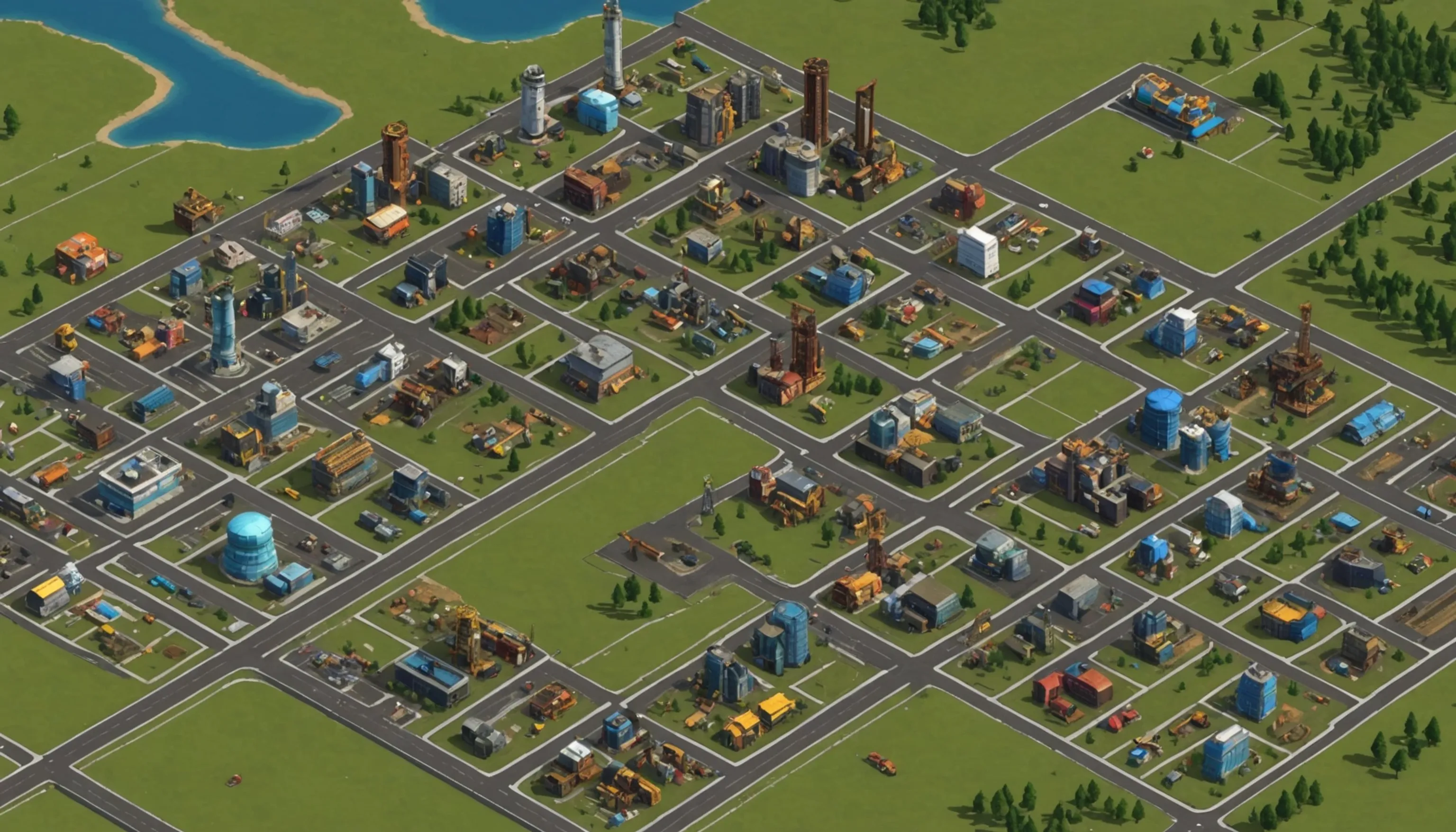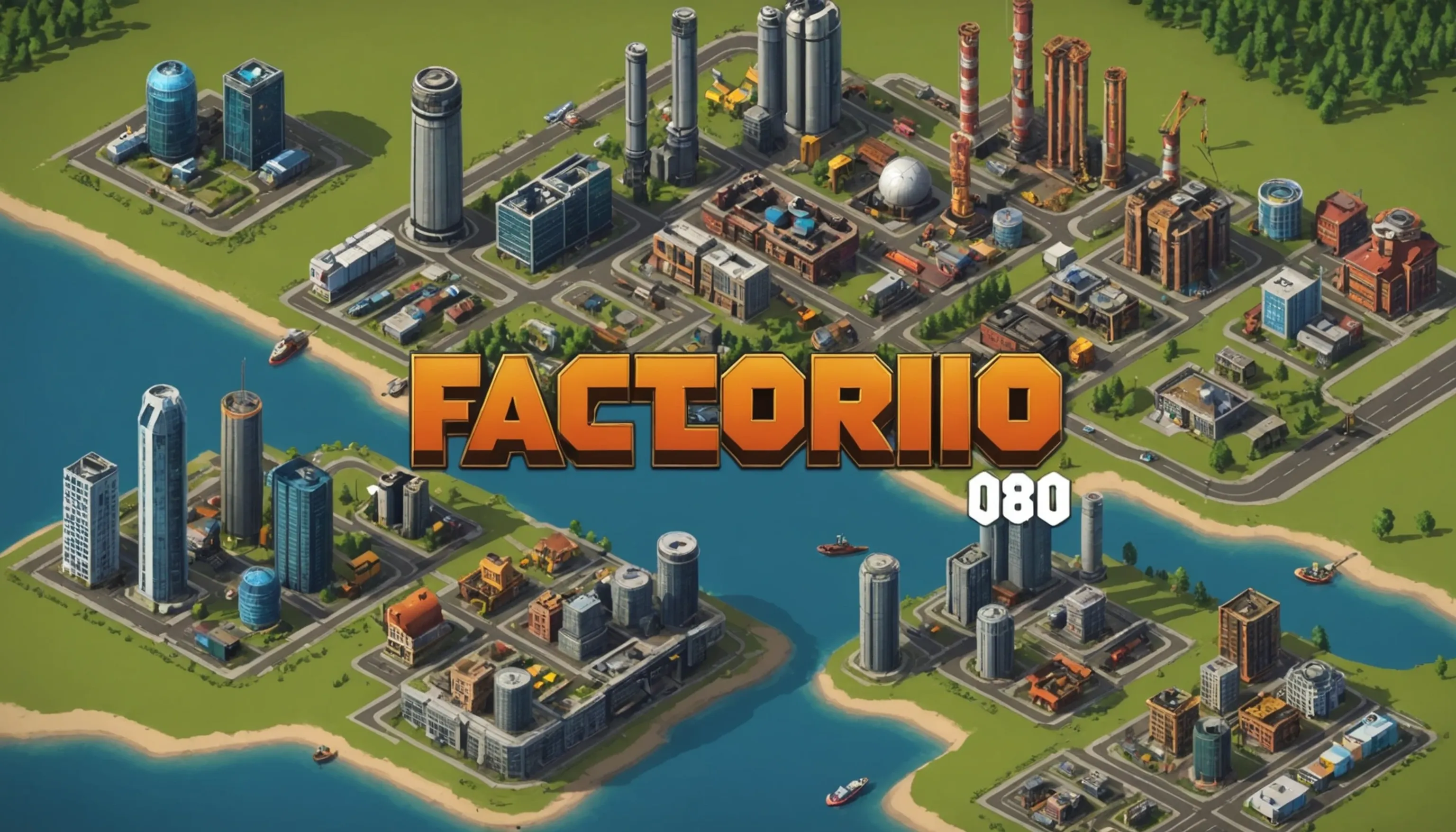Resource Management Games with Math
 HvWHenry van Wagenberg
HvWHenry van Wagenberg
Top Resource Management Games That Incorporate Math
Resource management games that incorporate math can be both entertaining & educational. These games challenge players to use mathematical concepts while managing resources effectively. Here are some top picks:
- Factorio: Players build factories and manage production lines, requiring calculations for efficiency.
- Cities: Skylines: This city-building game involves budgeting, population growth, & resource allocation, enhancing strategic thinking.
- Anno 1800: Players balance trade & production while managing resources, making math a key element in expansion.
Engaging with these games can help teenagers improve their math skills in a fun way.
Benefits of Using Math in Resource Management Games
Incorporating math into resource management games offers numerous benefits for players, particularly teenagers. These games create an engaging platform where math becomes an integral part of gameplay, leading to skill enhancement in several areas.
Firstly, resource management games promote critical thinking & problem-solving skills. Players must assess situations, make quick decisions, & allocate resources efficiently, all of which require mathematical reasoning. For instance, determining the optimal number of resources needed for a specific task involves addition, subtraction, and sometimes even more complex calculations.
Secondly, these games enhance numeracy skills. Players frequently encounter situations that require them to calculate costs, manage budgets, & predict future resource needs. By regularly engaging with these mathematical challenges, teenagers can develop a stronger grasp of mathematical concepts without the pressure of traditional learning environments.
Additionally, resource management games foster a sense of accomplishment. When players successfully execute a strategy based on mathematical calculations, they not only achieve in-game rewards but also gain confidence in their math abilities. This positive reinforcement can motivate teenagers to tackle more challenging math problems in their academic life.
Lastly, these games often encourage collaboration & communication when played in multiplayer modes. Discussing strategies & mathematical approaches with peers enhances social skills & encourages group learning, making math a shared experience rather than an isolated task.
How Math Skills Enhance Gameplay and Strategy
Math skills play a crucial role in enhancing gameplay & strategy in resource management games. Players often face complex scenarios where efficient resource allocation, budgeting, & planning are essential for success. By applying mathematical concepts, players can significantly improve their gaming experience.
One of the primary ways math skills enhance gameplay is through resource optimization. In games like Factorio or Cities: Skylines, players must calculate how to allocate limited resources to maximize production & efficiency. For example, understanding ratios and proportions can help players determine the most effective balance between production facilities and resource inputs. This analytical approach leads to better strategic decisions and successful game progression.
Additionally, players often need to analyze data and trends to make informed choices. Utilizing statistics, such as growth rates and resource depletion, allows players to forecast future needs & adjust their strategies accordingly. This data-driven mindset not only enhances gameplay but also fosters critical thinking skills applicable in real-world situations.
Moreover, math skills contribute to effective time management within the game. Players must plan their actions to achieve specific goals within a limited timeframe. Understanding concepts such as time intervals & deadlines can lead to more efficient task prioritization.
In summary, math skills are invaluable in resource management games, enabling players to optimize resources, analyze data, and manage time effectively. These skills not only enhance the gaming experience but also cultivate problem-solving abilities that can benefit players academically and in everyday life.

Recommended Resource Management Games with Math Elements
If you’re looking for resource management games that effectively incorporate math elements, here are some top recommendations:
- Factorio: Focuses on building factories, requiring calculations for resource efficiency.
- Cities: Skylines: Players manage city budgets, population growth, & resource allocation.
- Anno 1800: Combines trade, production, & resource management with strategic math challenges.
- Surviving Mars: Players must calculate resource needs while colonizing the Martian landscape.
- Oxygen Not Included: Resource management while ensuring survival, involving critical mathematical planning.
These games make math fun & engaging for teenagers!
Game 1: Factorio
Factorio is a highly acclaimed resource management game that combines engineering, strategy, and mathematics into an engaging experience. In this game, players are tasked with building and managing factories on an alien planet, where the primary objective is to construct a rocket to return home.
The game’s core mechanics revolve around resource extraction, processing, and production. Players must gather raw materials, such as iron and copper, and convert them into useful items. Here, math plays a vital role in determining the most efficient production ratios. For instance, calculating how many mining drills are needed to keep a factory running smoothly is essential for optimal performance.
Factorio encourages players to design intricate conveyor belt systems to transport resources. This requires spatial awareness and an understanding of logistics, which can involve mathematical calculations to optimize flow and reduce bottlenecks. Players often find themselves solving complex problems involving time management, resource allocation, and production cycles.
Moreover, Factorio supports multiplayer gameplay, allowing players to collaborate on large-scale factory designs. This aspect fosters teamwork and communication, as players discuss strategies and mathematical approaches to improve efficiency.
Overall, Factorio is not just about building; it's about using math skills to create complex systems that work seamlessly together. It offers a rich educational experience for teenagers, making math fun and applicable in a virtual environment.
Game 2: Cities: Skylines
Cities: Skylines is a popular city-building simulation game that effectively incorporates math elements into its gameplay. Players take on the role of a city planner, responsible for designing and managing a thriving metropolis. The game combines creativity with strategic thinking, making math an essential tool for success.
One of the key aspects of Cities: Skylines is managing the city's budget. Players must calculate costs for various infrastructure projects, including roads, public transport, and utilities. Understanding income and expenses is crucial for maintaining a balanced budget and ensuring the city’s growth. Players often find themselves performing calculations to determine the optimal tax rates to maximize revenue while keeping citizens satisfied.
Additionally, the game involves population management. Players need to analyze data on population density, demand for services, and traffic flow. This data-driven approach requires players to utilize statistical concepts, enabling them to make informed decisions about zoning and resource allocation.
Cities: Skylines also features a detailed simulation of traffic and public transport systems. Players must devise efficient routes and schedules, often employing mathematical reasoning to optimize travel times and reduce congestion. This aspect encourages players to think critically about logistics and resource management.
Overall, Cities: Skylines not only offers an immersive gaming experience but also provides teenagers with opportunities to apply mathematical concepts in real-world scenarios, promoting both critical thinking and problem-solving skills in an engaging way.

Game 3: Anno 1800
Anno 1800 is a captivating city-building and resource management game set during the Industrial Revolution, where players take on the role of a leader tasked with creating a prosperous empire. The game intricately combines economic strategies with math, making it an excellent choice for those looking to enhance their mathematical skills while enjoying immersive gameplay.
In Anno 1800, players must manage various resources to build cities, trade routes, and production chains. This involves complex calculations to determine the optimal quantities of goods needed for different population tiers. Players must analyze resource demands and production rates, ensuring that they meet the needs of their citizens while maintaining a balanced economy.
The game also incorporates elements of logistics and trade, requiring players to strategize about the most efficient transportation methods for goods. Calculating distances, travel times, and the costs associated with trade routes are crucial for maximizing profits and keeping the economy running smoothly.
Moreover, Anno 1800 challenges players to manage their workforce effectively. Understanding the relationship between population growth, resource availability, and production capabilities is essential. Players must utilize mathematical reasoning to optimize their workforce distribution, ensuring that every production facility operates at peak efficiency.
Overall, Anno 1800 offers a rich and engaging experience that combines history, strategy, and math. It provides teenagers with an opportunity to develop critical thinking and problem-solving skills, all while enjoying the complexities of building and managing their own empire.
Encouraging Teenagers to Engage with Math Through Games
Encouraging teenagers to engage with math through games can be an effective way to enhance their learning experience. Resource management games like Factorio, Cities: Skylines, and Anno 1800 provide a fun environment where math is not just an abstract concept but a practical tool for success.
To promote interest, parents and teachers can introduce these games as part of a balanced gaming schedule. Emphasizing the educational aspects while allowing room for creativity can help teenagers see the value in math. Additionally, discussing in-game strategies and mathematical concepts fosters critical thinking and collaboration.
Creating a gaming community where players share tips, strategies, and insights can further motivate teenagers. By highlighting the real-world applications of math skills gained from gaming, teens can find excitement in learning, making math a more enjoyable and relevant part of their lives.
Creating a Balanced Gaming Schedule
Creating a balanced gaming schedule is essential for teenagers to enjoy their favorite resource management games while also prioritizing their academic responsibilities and personal development. Striking this balance can enhance both gaming experiences and overall well-being.
First, it's important to set clear time limits for gaming sessions. Parents and teenagers can collaboratively establish a weekly schedule that allocates specific time slots for gaming. This approach encourages self-discipline and allows teens to manage their time effectively. For example, dedicating weekends or certain evenings exclusively for gaming can provide a structured approach that leaves room for other activities during the week.
Incorporating breaks during gaming sessions is also vital. Playing for extended periods can lead to fatigue, reducing both enjoyment and focus. Encouraging short breaks every hour allows teenagers to recharge and reflect on their gameplay, reinforcing the math concepts they encounter.
Moreover, blending gaming with other activities can create a holistic approach to leisure. For instance, participating in sports, reading, or engaging in creative hobbies can help maintain a balanced lifestyle. This variety ensures that gaming remains a fulfilling aspect of life rather than the sole focus.
Lastly, fostering open communication about the gaming schedule can help parents and teenagers navigate any potential conflicts. By discussing the importance of balance and the educational benefits of resource management games, both parties can work together to create a schedule that promotes healthy habits and enriches learning.
Discussing Game Strategies and Math Concepts
Discussing game strategies and math concepts related to resource management games can significantly enhance teenagers' understanding and appreciation of both gaming and mathematics. By fostering conversations around gameplay, parents and teachers can provide valuable insights that help teens connect mathematical principles to real-world scenarios.
One effective way to initiate these discussions is by encouraging teenagers to share their in-game experiences. For instance, when playing games like Factorio or Cities: Skylines, players can explain their resource allocation strategies and the calculations behind them. This not only reinforces their understanding of math but also helps them articulate their thought processes.
Incorporating specific math concepts into these discussions can further deepen understanding. Topics such as ratios, percentages, and statistical analysis can be explored through gameplay. For example, analyzing resource production rates can lead to conversations about optimization and efficiency, allowing teens to apply mathematical reasoning to improve their strategies.
Additionally, collaborative gameplay sessions can create opportunities for peer learning. When teens play together, they can brainstorm solutions to challenges and share different approaches, fostering a sense of teamwork. This environment encourages critical thinking and problem-solving, essential skills in both gaming and academics.
Ultimately, discussing game strategies and math concepts creates a rich learning experience. It not only makes math more engaging but also empowers teenagers to see its practical applications, enhancing their confidence and interest in the subject.
